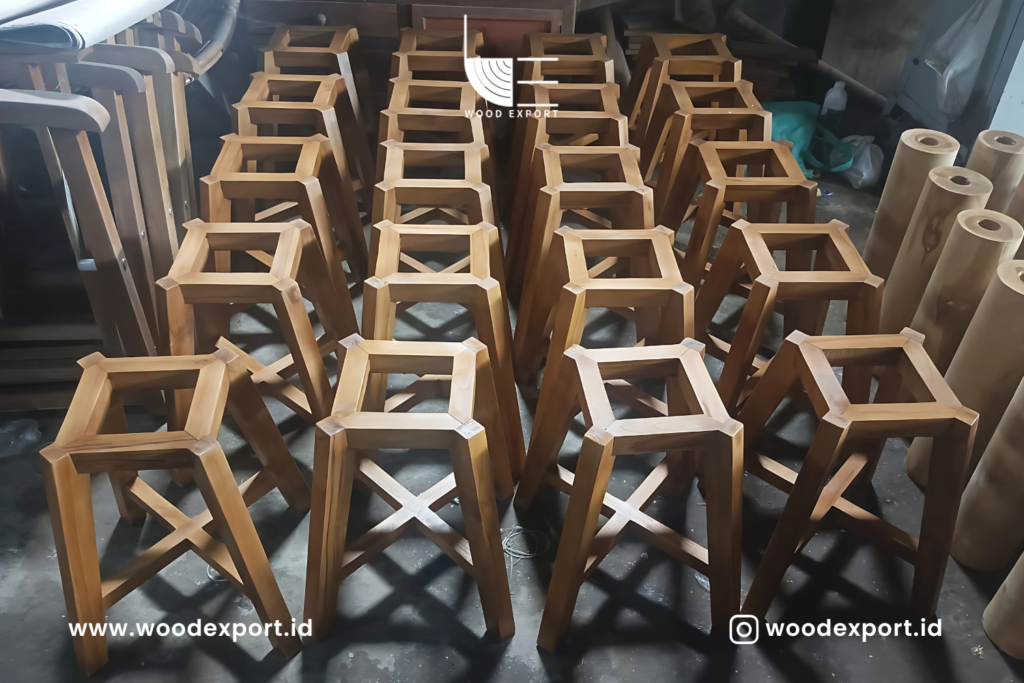Indonesia is one of the world’s largest exporters of wood and wood-based products, with a thriving industry that supplies high-quality timber to various global markets. Importers of Indonesian wood benefit from the country’s vast natural resources, sustainable forestry practices, and skilled craftsmanship. This article explores the key aspects of the Indonesian wood industry, including its benefits, regulations, and market trends.
The Strength of Indonesia’s Wood Industry
Rich Natural Resources and Diverse Wood Types
Indonesia is home to vast tropical forests, providing a diverse range of timber species. Some of the most popular wood types exported include:
- Teak (Tectona grandis): Known for its durability and resistance to weathering, widely used in furniture and shipbuilding.
- Merbau (Intsia bijuga): A high-density hardwood valued for flooring and decking.
- Mahogany (Swietenia spp.): A preferred choice for premium furniture and interior designs.
- Sonokeling (Rosewood): A luxurious wood used in musical instruments and high-end furniture.
- Acacia: Often used in paper production and furniture.
Sustainable Forestry and Certification
Sustainability is a major concern in the wood industry, and Indonesia has implemented strict measures to promote responsible forestry. The country follows the Timber Legality Assurance System (SVLK) to ensure that wood exports comply with environmental regulations and legal sourcing. Additionally, many Indonesian exporters obtain FSC (Forest Stewardship Council) certification, which guarantees sustainable forest management practices.
Regulations for Importing Indonesian Wood
Compliance with International Standards
Importers of Indonesian wood must adhere to international trade regulations and environmental policies. Some key regulations include:
- SVLK Certification: Required for all legal timber exports from Indonesia.
- EU Timber Regulation (EUTR): Ensures that imported wood meets sustainability standards in European markets.
- Lacey Act (USA): Prohibits illegal logging and promotes responsible sourcing.
- CITES (Convention on International Trade in Endangered Species): Regulates the trade of endangered wood species.
Documentation and Permits
To import wood from Indonesia, businesses must secure necessary documentation, including:
- Bill of Lading
- Phytosanitary Certificate
- FLEGT License (for exports to the EU)
- Certificate of Origin
- Invoice and Packing List
Market Opportunities for Importers

High Demand for Indonesian Wood Products
Indonesian wood products are in high demand worldwide, particularly in markets such as the United States, Europe, China, and the Middle East. Popular wood products include:
- Furniture: Indonesia is known for its high-quality handcrafted wooden furniture.
- Plywood and Veneers: Used in construction and interior decoration.
- Flooring and Decking: Hardwood species like Merbau and Teak are highly valued.
- Wooden Handicrafts: Artisanal products with intricate designs attract buyers globally.
Competitive Pricing and Skilled Workforce
Indonesia offers competitive pricing due to its abundant resources and efficient production processes. The country’s skilled artisans and craftsmen further enhance the quality of wood products, making them appealing to importers seeking premium yet affordable materials.
Challenges and Considerations for Importers
1. Environmental and Legal Risks
Despite Indonesia’s efforts in sustainable forestry, illegal logging remains a concern. Importers must work with reputable suppliers to ensure compliance with legal and ethical sourcing standards.
2. Shipping and Logistics
Importing wood involves complex logistics, including customs clearance, shipping costs, and potential delays. It is essential to work with experienced freight forwarders to facilitate smooth transactions.
Indonesia’s wood industry presents lucrative opportunities for importers seeking high-quality and sustainably sourced timber. With proper compliance, strategic partnerships, and market knowledge, businesses can benefit from the country’s rich wood resources. As global demand for eco-friendly and legally sourced wood continues to rise, Indonesia remains a key player in the international timber trade.

